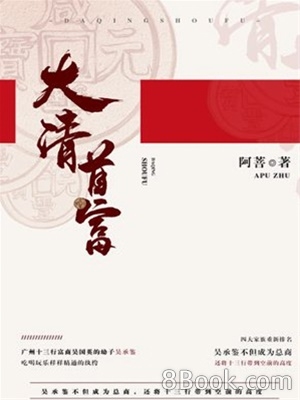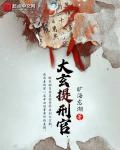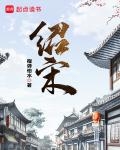Chapter 262: Marriage (Part 3)
Gao Pang and Feng Yukuan came out of Huo Chong's place together. Looking at the old sea merchant who was almost fifty years old, Gao Pang felt angry. Just as he was about to leave, he heard Feng Yukuan say, "Mr. Zhuangyuan, I think you should not talk nonsense to the governor. There are only two ways to do this. One is for the governor to find a few women to have children, and the other is to hold a grand ceremony and marry a daughter from a good family. What you said is too unrealistic."
Gao Pang was unhappy to hear this, "Mr. Feng, the governor's marriage is a big deal..."
After hearing this opening, Feng Yukuan immediately interrupted Gao Pang and said, "Mr. Zhuangyuan, you just don't understand. The governor has figured it out."
"What did you figure out?"
"Tsk, I thought you had already figured it out since you started this matter." Feng Yukuan said with some disdain in his tone.
Gao Pang really couldn't figure it out, so he could only ask, "What's going on?"
"Mr. Zhuangyuan, the most important thing right now is not what kind of woman to marry. I have seen so many people, and none of them can compare to Brother Huo. He will definitely become the emperor. The most important thing right now is to give birth to a child as soon as possible so that everyone can feel at ease. As for who gives birth to the child, does it matter?"
Gao Pang was speechless for a moment. Feng Yukuan's words were full of gangsterism, but they grasped the main point of the matter.
Feng Yukuan continued, "Brother Huo is a scholar, just like you. You both think too much. He already knew that this is the best thing to get into the basket, so why is he short of kids now! He needs a few kids to run around!"
Faced with such a realistic explanation, Gao Pang couldn't help but think of the young lady of Mr. Chen Mingtai's family. The beautiful figure of the girl made Gao Pang particularly unable to accept Feng Yukuan's statement.
"Mr. Zhuangyuan, you should go and persuade Brother Huo. Just go to the Kong family and capture a girl to marry. If you are worried that you won't be able to have children, just capture a few more. What's the point of robbing girls? We go to his house because we respect them. What's the matter? Are they more valuable than Emperor Yongzheng?" After saying that, Feng Yukuan said goodbye and left , leaving Gao Pang, who was a little dazed, standing there speechless.
Gao Pang was really speechless. It stands to reason that Shandong people should have great respect for the Yanshenggong Mansion. There was a strange feeling in Feng Yukuan's words. On the one hand, he looked up to the Kong family and thought that the girls of the Kong family were worthy of Huo Chong. On the other hand, he had the impulse to surpass the Kong family, which was quite like a nouveau riche.
Thinking back to Feng Yukuan's words, Gao Pang himself was a little confused. He began to wonder what family was for someone like Huo Chong? Was it a tool for having children, or a home?
Things stopped for a short while. It was May. When May came, it was time to prepare for the wheat harvest. Everyone in the Han regime started to get busy. Huo Chong also got busy.
This busy time was not about preparing to continue the war, or joining another battlefield. The lecture tour began.
The lectures naturally started in Linzi, and the target audience was the cadres and activists of the local farmers' association. Unexpectedly, as soon as the lecture plan was sent out, the Linzi Farmers' Association reported that the local landlords headed by Mr. Ding actually requested to attend the lectures.
If it were in other places, the gentry would have either rebelled early and been defeated, or been destroyed during the Qing army's escape not long ago. They were lucky enough to escape these two crises, because the gentry were not well received and no one would give them a chance.
However, Mr. Ding had long ago helped to connect Huo Chong with Lao Ba's followers, so he was considered a meritorious person. The Farmers' Association initially refused, but Mr. Ding was determined to participate, so he brought the matter to Huo Chong's attention.
Huo Chong originally did not want to let the gentry and the members of the farmers' association attend the class together, but after thinking about it, he felt that this was an opportunity to observe, so he simply agreed.
Time was short and the task was heavy, so Huo Chong arrived at the class quickly. Everyone sat around and Huo Chong briefly introduced himself, and the people below were already surprised. Many people had only heard of Huo Chong, or had seen him from afar. Unexpectedly, Huo Chong, who had defeated the government troops, actually came in person.
"Many people have asked me why I wanted to lead everyone in rebellion . I told those who asked me that everyone's life was too hard." Huo Chong made a very simple beginning.
"Then I asked those people why their lives were so hard. Now I want to ask everyone, why do you think your life is so hard?"
Even the people from the Farmers' Association were unable to answer for a moment. But Mr. Ding spoke up and said, "Life is hard because the land rent is high and the taxes are high."
As soon as these words were spoken, the common people in the Farmers' Association nodded repeatedly. It was obvious that they agreed with these words.
Huo Chong looked at Mr. Ding, not understanding what he meant. But since what he said was correct, Huo Chong did not want to refute it. He continued, "Let's do the math. How much does it cost to rent the land?"
Before returning to this era, Huo Chong really didn't know how heavily the landlords exploited the peasants. After really returning to this era and conducting an investigation, Huo Chong realized how reactionary the landlords of the Qing Dynasty were.
Almost half of the people in the farmers' association in front of him were self-employed farmers, but they were also very familiar with the situation in the village. Huo Chong was not worried that these people would not understand, so he started to tell the story.
Landlords never rent out all the land. Instead, they always leave some land unrented. The reason is simple: if all the land is rented out, the rent cannot be maintained at a high level.
Although the term "hunger marketing" appeared relatively late in New China, the landlords are undoubtedly masters at using this trick.
If there are ten people who want to rent land, the landlord only provides seven plots of land and the profit is actually higher.
The farmers were puzzled when they heard this. Some asked why.
Huo Chong randomly listed a multiplication. If there are ten plots of land and ten people renting them, each person would receive about 40% of the rent, and the landlord would receive 40%.
If there are ten plots of land, and seven are rented out, and 60% of the rent is collected from each plot, the landlords will earn 42.
Allowing some land to be abandoned not only did not reduce the landlord's income, but actually increased it a little bit. And manipulating the rent itself raised the rent. This is a very good deal.
Many farmers didn't know math at all. Some knew better. Anyway, everyone counted on their fingers and it took a long time to figure it out.
The process was extremely difficult for the farmers, but after they had figured it out, the farmers in the meeting fell silent. They showed disbelief on their faces. It was obvious that leaving the land uncultivated and making more money was beyond the farmers' imagination.
Suddenly someone shouted, "These black-hearted people! They are nothing!"
With someone taking the lead, the farmers, especially the tenants, all started cursing.
Huo Chong looked at Mr. Ding and the landlords and gentry behind him. Perhaps this group of people can also be labeled as enlightened landlords, but landlords are landlords. Enlightenment is just that the landlords choose to succumb to reality for their own interests, which does not mean that they will not use such means to squeeze profits.
The landlords and gentry behind Mr. Ding all had extremely ugly expressions on their faces. Some of them lowered their heads, and it was unclear whether they were feeling guilty or angry.
Mr. Ding, who was sitting at the front of the group, nodded slightly, as if he was savoring it carefully.
At this time, the peasants had almost finished cursing, and someone asked, "Master Huo, some landlords don't do this."
"Any landlord who doesn't do this must be short of land in the first place. If all the land is rented out, ten people can only get six or seven plots. Of course, the landlords can use the rent to increase the rent."
After listening to Huo Chong's words, the peasant friends suddenly understood and started to curse the landlords again, saying that they were all evil people with black hearts.
Seeing that this main point had been covered, Huo Chong moved on to the next main point.
Since the landlords have created a land shortage, the tenants who want to rent the land have to accept the landlords' asking price. If they don't rent the land, others will naturally come to compete for it.
At this time, the landlords would first collect a deposit. Since they were reduced to renting land, where would they get the money? So the landlords started lending money at high interest rates.
Huo Chong really didn't know why poor people had to borrow money from landlords. In a small peasant society, self-sufficiency is the key. And everyone is not stupid, so how could they not understand the horror of borrowing money?
After going back to the Qing Dynasty and doing some research, I realized that consumer loans and naked loans on P2P were not original. They were already being done in the Qing Dynasty. These people are just following in the footsteps of their predecessors.
Huo Chong even figured out why these methods had completely disappeared for decades, so that young people had no idea that such things had ever existed.
Because New China really eradicated these tricks completely. At least when Chairman Mao was alive, anyone who dared to do so would lose his head.
By taking advantage of land scarcity to raise land rents and using the deposit trick to make farmers owe money to the gentry, the gentry completely controlled the farmers' livelihoods.
Huo Chong added arithmetic problems while he was talking. The farmers calculated with great difficulty, and the process was very strenuous. But after they got the results, they understood.
"Fellow villagers, you will understand if you do the math. You work hard all year, but in the end 60 to 70 percent of the harvest is taken away. How can life not be hard? It would be strange if life wasn't hard!" Huo Chong said loudly.
I thought the farmers would be angry after hearing this. But the farmers did not get angry. After being stunned, someone suddenly burst into tears. Huo Chong looked over and saw an old man in his forties burst into tears.
Just as he was about to go forward to comfort her, the person next to him also had tears in his eyes and started to cry, crying and shouting: "I am so miserable! I am so miserable! No wonder! No wonder !"
Huo Chong felt annoyed. Why cry? If crying was useful, wouldn't it be better for everyone to sit on the ground and cry loudly when they encounter difficulties?
However, more and more people were crying in the venue, and everyone else also looked sad.
However, a few gentlemen could no longer bear to listen and stood up and rushed out of the meeting place.
Huo Chong originally wanted to cheer everyone up, but he was inexplicably infected by the atmosphere, and his eyes became inexplicably moist.
Walking up to the crying tenants, Huo Chong said to them, "Cry, cry. When you're done crying, I'll lead you all to live a good life together!"






